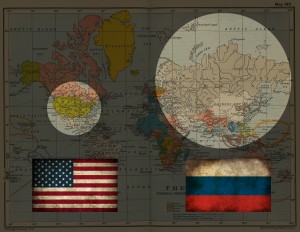The hippies in L’viv were acting upon feelings of isolation in a modern industrial world, their perceptions of hypocrisy of Soviet Communist organizations, and a general yearning for individualism. Unlike Natalia and Gennadii, who were introduced to us in Raleigh’s “Sputnik Generation”, these hippies of the late 1960s and ’70s did not feel the same natural obligation to obey their parents and the soviet societal structure. In fact, many youths were drawn to the hippie culture by family conflicts. Also, unlike Western hippies of the time, the L’viv hippies were acting within a state in which the communist party attempted control over all aspects of the public sphere. Because of such communist control, the hippies rebelled against societal norms by following typical behavior of the Soviet identity. For example, although hippies saw the Communist Youth Organization as “veiled in hypocrisy”, hippie groups imitated the elements of structure and hierarchy as seen in the practices of communist youth organizations. Therefore, hippies were rebelling against Soviet society by structuring themselves in a way that was, in fact, Soviet.
Just as gender discrepancies were brought to light in Natalia’s discussion of her work and family, hippie gatherings and the hippie culture in general also raised the question of a woman’s role in society. Even in a movement embodying Soviet counter-culture, men still dominated in numbers and power. Women’s participation in the hippie movement was viewed as inappropriate and outside of the natural sphere, just as Natalia’s position as the head of the language department remained outside the normal role for women. Like the Sputnik Generation, the hippies were living within an era of conservatism. What pushed the hippies to rebel against Soviet society in the 1970s while others, such as Natalia and Gennadii, were content to grow up within the Soviet structure? Because the Soviet period spanned over vacillating periods of tradition and change, as well as political stagnancy and progression, there can be no typical “Soviet child”. There may be a continued ideal for a child’s behavior throughout the Soviet period, but this ideal is never met (or challenged) in the same way throughout Soviet generations.


